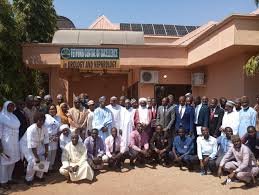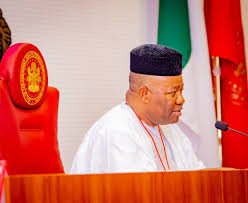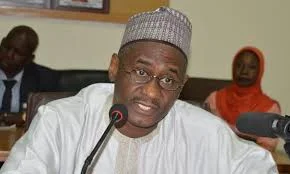As Nigerians approaches the Christmas and New Year holidays, a fresh wave of cash shortages is causing widespread frustration, particularly among market vendors and small businesses that rely on cash transactions.
Despite a recent revelation by the Central Bank of Nigeria (CBN) that N3.87 trillion remains outside the banking system, many Nigerians are struggling to access cash, exacerbating concerns over the country’s reliance on physical currency.
The latest statistics reveal that 93.34 percent of Nigeria’s currency is held by individuals and businesses, with only 6.66 percent circulating within the formal banking sector.
This highlights the nation’s ongoing dependency on cash, even as digital banking services expand across the country. Yet, the shortage is being felt most acutely in local markets where cash remains the dominant mode of exchange.
Mr. Isah Zakari, the National Secretary of the Association of Point of Sale (POS) Users in Nigeria (APOSUN), attributed the shortage to multiple factors, particularly the actions of commercial banks.
In December 2023, banks significantly reduced the amount of cash allocated to POS agents, restricting their ability to meet growing demand. Zakari also claimed that some POS outlets, often owned by bankers, were hoarding cash meant for circulation, further deepening the crisis.
“If I need N50,000, I go to the bank, which is my right because I deposited that money. But now, banks have reduced ATM withdrawals to as little as N10,000, and POS operators face similar restrictions,” Zakari said.
He added that POS transaction fees have risen sharply in response to the limited cash availability, with some operators now charging N1,000 for transactions as large as N50,000, up from N500 previously.
The situation is dire in areas such as Abacha Road, Mararaba, and Ado in Nasarawa State, where residents and businesses report significant difficulties accessing cash.
ATMs in these areas are dispensing as little as N10,000 at a time, forcing customers to wait in long lines.
Hassan Usman, a POS operator in the region, confirmed the scarcity, noting that he had been unable to access funds from the bank for weeks.
“I haven’t been able to get money from the bank. What’s saved me is the filling stations I rely on, but even that has come with higher charges,” Usman said.
At a crowded ATM point at First Bank’s Mararaba branch, Ibrahim Muhammed, one of the customers waiting to withdraw cash, explained the lengths some individuals go to when cash is in short supply.
“A lot of the people you see here are POS agents. They carry 4-5 ATM cards, trying to withdraw as much as they can,” he said.
In Kogi State, POS agent Mallema Rukuyya Musa Adejoh lamented the severe impact of the shortage on her business.
“We are finding it difficult to get cash. The situation is worsening, and even the filling stations we rely on are feeling the pinch,” she said.
“We don’t know what’s happening, but the government needs to act quickly. We can’t keep suffering while looking for cash.”
Food vendors, like Blessing Adeyemo, who depend on cash to run their businesses, are also bearing the brunt of the shortage.
“I can’t get enough cash from the ATMs. I need N100,000, but I can only withdraw N5,000 or N10,000 at a time. It’s a struggle,” she said.
While many Nigerians point fingers at the banking sector, some insiders suggest that POS operators themselves may be contributing to the shortage.
Bank officials have claimed that POS operators frequently engage in hoarding practices, opening multiple accounts and withdrawing large sums from ATMs to stockpile cash.
“POS operators move from one ATM point to another to withdraw as much cash as possible, often leaving little for others,” one bank official said.
Despite these challenges, bank officials argue that the root cause of the shortage is not solely the banking sector. “Cash hoarding is widespread in Nigeria,” one banker explained.
“People are stockpiling money in their homes, which prevents it from entering the banking system.” This hoarding mentality, the banker added, is a significant barrier to achieving a more cashless society and underscores the need for greater adoption of electronic transactions.
As Nigerians continue to face difficulties in accessing cash, the ongoing shortage underscores the country’s complex relationship with physical currency, even as digital banking options expand. With the holiday season fast approaching, many citizens hope that the government and financial institutions can find a solution to ease the burden and restore access to cash.






















